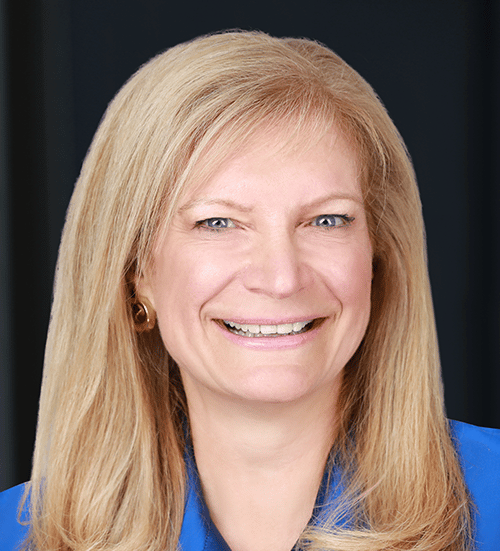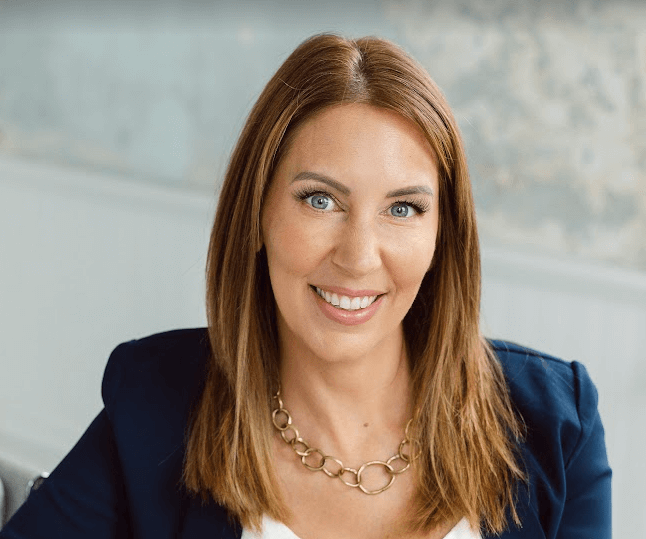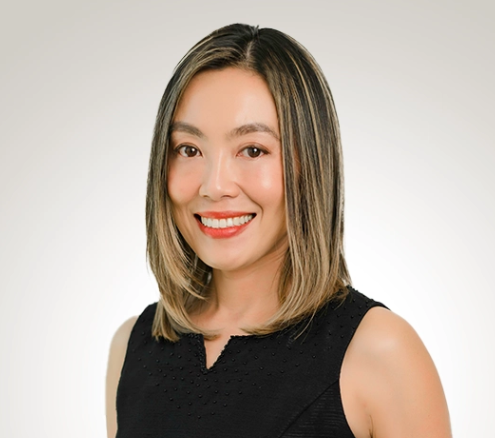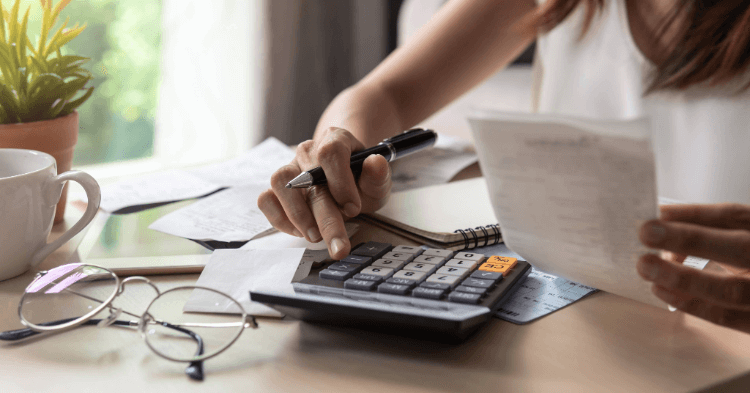Being prepared for unexpected expenses is an important part of your financial security. Life often throws you curveballs — having an emergency savings fund can help you navigate these challenges more easily.
Here’s what you need to know about emergency funds, why they’re important and how you can start and manage one.
What is an emergency fund?
An emergency fund is a savings account you can dip into when urgent, unexpected expenses arise. These can include medical bills, car repairs or living expenses during a job loss. Think of it as a financial safety net that helps ensure you’re prepared for unplanned expenses.
Emergency funds are sometimes confused with “rainy day” funds, but there is a key difference between the two. Rainy day funds are for minor, expected expenses that aren’t accounted for in your monthly budget. A rainy day fund helps you cover an appliance repair, unexpected travel costs or doctor visits without using a credit card.
In contrast, emergency funds are for larger, or longer-term emergency costs, such as major home repairs or unforeseen medical expenses.
Why do I need an emergency fund?
Around 37% of Americans would struggle to cover a $400 emergency with cash or the money in their checking account. Without savings, emergencies can cause people to rely on credit cards or personal loans, which can lead to carrying debt.
An emergency fund provides a cushion to protect against this financial strain. It helps ensure you’re prepared to handle life’s surprises without derailing your long-term financial goals. It also helps eliminate the stress of scrambling for cash during challenging times, giving you a sense of security. Here are a few key benefits of an emergency fund:
Protects against debt. You’re less likely to take out a loan, or run up a credit card balance to handle emergencies, when you have an emergency fund.
Provides stability. An emergency fund helps you maintain your cash flow and ensure you can still cover regular expenses like rent, mortgage payments, groceries or your dependents’ needs during tough periods.
Boosts confidence. Knowing you’re financially prepared can reduce worry and improve financial decision making.
How do I start an emergency fund?
Starting an emergency fund might feel overwhelming, but small, consistent steps are your best bet. Here’s how you can begin:
- Set a goal. Think about what amount of money would make you feel confident in the event of an emergency. While most experts advise having three to six months of expenses in savings — that’s not always realistic. Your first savings goal for your emergency fund can start smaller. Consider saving $500 to $1,000 to get started.
- Automate your savings. You can set up automatic transfers from your checking account to your savings account. This can help you “set it and forget it.” Splitting your direct deposit and sending a small percentage of your paycheck directly to savings can make a big difference over time.
- Cut unnecessary expenses. Examine your monthly budget and identify areas where you can cut back. Look for subscriptions you no longer need, or explore ways to save money by eating out less frequently or spending less on unnecessary items.
- Use windfalls wisely. When you receive an influx of cash, including tax refunds or cash gifts, save a good portion of that money to help you speed up your progress.
Remember, it’s less about how much you save per month and more about staying consistent.
How much should I save in an emergency fund?
The common rule of thumb is to save three to six months’ worth of expenses. However, this can be an intimidating goal. When you’re first starting your emergency fund, you can aim for a smaller amount. Think about your personal finances and your other short-term goals. If you recently had a financial emergency, think about the amount of money that would have covered it. Even having a small amount in savings can help.
Where should I keep my emergency fund?
Your emergency fund should be kept somewhere secure. Your money should also be easily accessible so you can make a withdrawal easily in the event of an emergency. For example, certificates of deposit can charge a penalty if the funds are withdrawn early.
Here are a few common places people stash their emergency money:
High-yield savings account. A high-yield savings account is a savings account that helps your money grow faster. Banks will often offer savings accounts that earn interest as a reward for saving through them. A high-yield savings account earns more interest than a normal savings account, but sometimes requires a minimum balance, or it limits the number of withdrawals you can make.
Money market account. A money market account is a mix between a savings account and a checking account. Often, you’ll use a checkbook or debit card to make transactions. However, the bank will often cap the number of transactions you can make monthly.
Cash. Many people save cash instead of opening a separate savings account. If you choose to do this, make sure your money is stored somewhere safe and secure — so it won’t get lost or damaged.
Savings account. When looking for a bank or credit union to open a savings account, be sure to check that they are FDIC-insured. This means your money will be protected in the rare event your bank or credit union fails.
When to use my emergency fund?
Your emergency fund should be reserved for essential expenses and true emergencies, such as medical bills, home repairs or living expenses during a job loss. It’s not for discretionary spending or planned expenses.
Emergency fund mistakes to avoid.
Drawing funds for non-emergencies. Resist the temptation to use your emergency funds for non-urgent expenses. In a pinch, it can be used when you need help paying regular bills, but it shouldn’t be relied on. Budgeting is a more sustainable fix.
Not adjusting your savings goal. As your financial situation changes, so should your emergency fund goals. A growing family, or a new home, might require you to increase your savings.
What to do if saving feels impossible.
Budget. Budgeting is an important part of managing your personal finances. It helps ensure that your basic needs are met, and that you have some money left over for savings and things that make life enjoyable for you. Any good budget should have some funds allocated to savings. Try creating a budget if you don’t already have one. If you do, it may be time to revisit it.
Try a savings challenge. There are a ton of savings challenges that can help make saving more approachable. These challenges are motivating, while you watch your money grow. Something like the 52-week challenge can be a good place to start. It’s a year-long savings challenge where you put in $1 the first week, $2 the next week, $3 the week after — and so on. It may not seem like a lot at first, but at the end of the 52 weeks, you’ll have $1,378.
Find extra income. If you’re having a difficult time saving with what you’re earning now, it may be time to find where you can cut back on expenses or start looking for a side hustle. There are tons of opportunities online, and in your local community, that can offer additional income which can allow you to save.
Borrowing options for when you’re savings fund isn’t enough
In the event that an emergency expense pops up and what you have saved isn’t enough to cover it, there are loan options available that can get you the money fast. Remember that borrowing comes with the added cost of interest, and other solutions should be pursued first before taking on debt.
Personal installment loans. Personal installment loans can provide you with an upfront lump sum of cash in emergency situations. The money is deposited into your bank account, and paid back in smaller installments over time.
Personal lines of credit. A personal line of credit is a form of revolving credit. If approved, you’ll get access to funds up to a set credit limit. Typically, you can draw just a portion or your entire credit limit depending on your needs. As you pay the balance down, the funds become available to borrow again.
Payday loan alternatives. When faced with a financial emergency, there are payday loan alternatives you can turn to. Payday loans typically come with higher interest rates and short repayment periods which can make them difficult to repay and lead to a cycle of debt. Both installment loans and lines of credit can serve as an alternative when you need money now.
What Experts Say
“I typically recommend keeping between 3 to 6 months’ worth of cash reserves on hand in an easily accessible place — this could be in your checking account (if you can trust yourself not to spend it down), a high-yield savings account, or in a money market mutual fund. In the event of unforeseen home emergency expenses, you will have enough cash available to cover the basics (food, shelter, transportation).”
Aviva Pinto, CDFA, CDS, Managing Director
Wealthspire
“Funds in the emergency fund are not meant for vacations, holidays, or other predictable expenses. The purpose of the emergency fund is to avoid the use of credit cards, retirement accounts, and other long-term savings when an emergency arises and instead be able to have the funds available to fund the unexpected situation.
“The emergency fund creates a cushion for yourself and your family that will allow you to fund the unexpected events in your life so that you can keep your focus on your family, health and things that are important to you.”
Jennifer Aube, M.S., CFP, ChFC, CKA, Vice President, Financial Advisor
Wironen Aube Wealth Management
“An emergency fund is more than just a financial reserve; it’s a manifestation of a healthy money psychology. It represents a commitment to financial security and self-reliance.
“It underscores a proactive, rather than reactive, approach to personal finance. This proactive stance is integral to a positive money psychology, where financial decisions are driven not by panic or pressure, but by thoughtful, well-considered strategies.”
Khwan Hathai, CFP, CFT, Founder, Financial Therapist
Epiphany Financial Therapy
DISCLAIMER: This content is for informational purposes only and should not be considered financial, investment, tax or legal advice.
Article Contributors

Aviva Pinto, CDFA, CDS
Aviva Pinto has over 30 years of experience in the financial services industry. As an advisor, Aviva works with individuals in transition (sale of business, inheritance, divorce, widowed) to determine the most appropriate course of action for their financial assets. She helps guide them so they feel more confident about their financial future. Aviva is currently on the finance council of Forbes.com. A frequent speaker at family office conferences and events, Aviva has been voted one of the Top 50 Businesswomen on Long Island for multiple years and was named one of Crain’s New York Business 2020 Notable Woman in Finance. She is also actively involved in the industry and her community, serving as Trustee and Chairwoman of the finance committee for Port Washington Library Foundation, Director of the Nassau, Long Island chapter of the National Association of Divorce Professionals, Trustee of Manhasset Bay Yacht Club and Alumni Student Recruiter for the University of Michigan.

Jennifer Aube, M.S., CFP, ChFC, CKA
Jennifer holds the distinguished CFP® designation and strives towards constant professional and personal development. When she is not serving her clients, she spends time with her family and friends, visits her Florida home and clients, enjoys a good book, and gets out to local farmer’s markets.

Khwan Hathai, CFP, CFT
Khwan is a trailblazing Certified Financial Planner and Certified Financial Therapist, who earned her Master of Science in Financial Planning. As she combines her qualifications and extensive professional experience in the wealth management industry in revolutionary ways, she has become renowned for her innovative approach that merges the robust methodologies of money mindset shift, behavioral financial planning, and somatic breathwork healing. As the Founder of Epiphany Financial Therapy, Khwan has established herself as a pioneer in the field of financial therapy. With her diverse background and global vision, Khwan provides a new and unique approach to money management that redefines financial health by integrating the wisdom of body and mind with behavioral economics – a departure from traditional financial advice.




